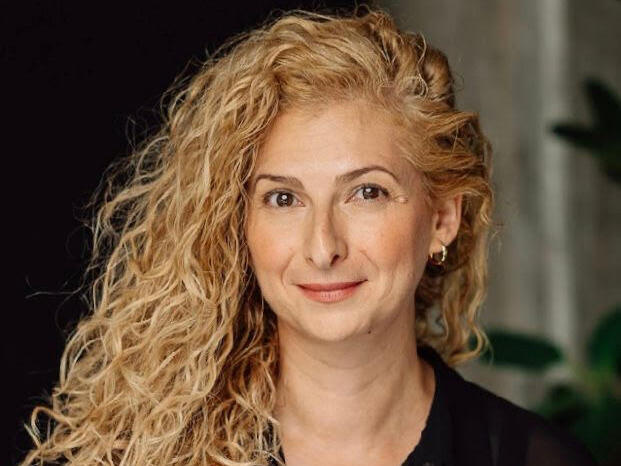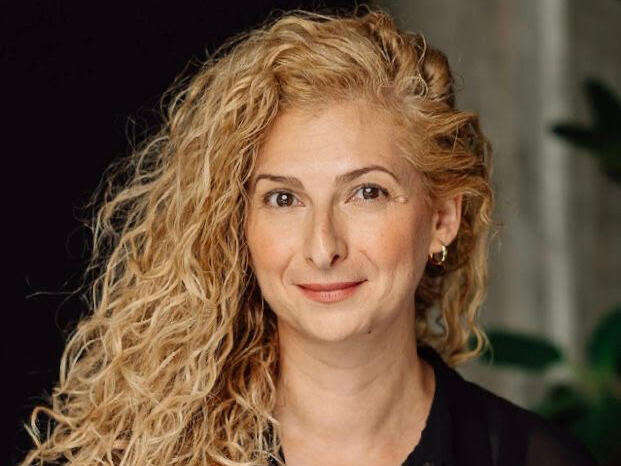
HR in War
"Our immediate reaction to this situation is deeply emotional.”
Plarium is a global gaming company that felt protected within the enlightened world of Startup Nation. Then came 7/10.
“We are individuals and Israelis first and foremost, before we are managers, employees, or professionals dedicated to Plarium's mission, despite being a business entity,” said its company’s Global VP HR, Batya Ivanizer. “As such, our immediate reaction to this situation is deeply emotional.”
By 9 a.m on 7/10, the gaming company had already sent out a message to employees that the country and organization had entered into “an emergency situation.” However, on a personal level, the fight had just begun.
“Comprehending the seriousness of this situation requires time,” she continued. “When you're deeply involved in the high-tech sector, part of a forward-thinking global company, you might think you're protected in an enlightened world. Yet, When the darkness strikes, the emotional impact is profound, resonating with both our senior managers and every team member.”
HR in War explores how companies in Israel are adapting in unusual times. CTech believes the world should know about the atrocities committed on 7/10 while also highlighting the continued resolve and resistance of the Israeli tech ecosystem.
Company name: Plarium Global Ltd.
Your name and title: Batya Ivanizer
Names of founders and upper management: Schraga Mor, CEO; Nanny Balas, Chief of Staff; Batya Ivanizer, Global VP HR
Field of activity: Gaming
Number of employees: 1,500
Office location: Headquarters in Israel, with offices & studios in Poland, Ukraine, Finland and Spain
On a scale of 1-10, how much did the war disrupt operations at the company?
Four. We promptly organized ourselves, involving communications, operations, HR, and management. The business also promptly made the necessary adjustments. While there were approximately two weeks for people to regroup and return to their regular capacity, it led to some disruption.
What consequences have you experienced from these disruptions?
We are individuals and Israelis first and foremost, before we are managers, employees, or professionals dedicated to Plarium's mission, despite being a business entity.
As such, our immediate reaction to this situation is deeply emotional. Comprehending the seriousness of this situation requires time. When you're deeply involved in the high-tech sector, part of a forward-thinking global company, you might think you're protected in an enlightened world. Yet, When the darkness strikes, the emotional impact is profound, resonating with both our senior managers and every team member.
Thankfully, we are a company deeply connected and with a lot of resilience. Immediately, we initiated emergency protocols, along with setting up a crisis management team, offering our employees close communication and updates about events, and how we, as an organization, handle them alongside our primary concern, which is the welfare and well-being of our employees.
What are the two major challenges you are coping with these days?
The biggest challenge is the personal aspect, taking care of our people, and understanding the complexity. The current intricate nature of relationships is divided into two main areas: the employees who are soldiers at the front lines - it is important to remember that like any good organization, many of our employees currently serve in Reserve Duty (emergency call-up) across various sectors and positions. Whether they just finished their service or have a spare hour after the phone call to their families, they check what's happening in the business and who needs support. It's a highly complex structure to maintain, so first and foremost, people and their well-being are our biggest challenge.
The second aspect involves the people on the Homefront - family members, many of whom are closely connected, in one way or another, to the unfolding tragedy. We understand that numerous employees are balancing work with children at home, with some being exposed to daily distressing events. It's crucial for us to approach this situation with profound sensitivity and discernment.
We want to ensure we are maintaining business continuity. Yet, it's equally clear to us that the best approach to this is by providing emotional support and a supportive atmosphere for our employees.
What support do you provide to employees?
The primary and most essential form of support revolves around listening, embracing, displaying empathy, and demonstrating love and care for our employees. They are not just our employees; they are our community, our people. On Saturday 7/10 at 9 a.m., we issued an official announcement to the organization that we are entering an emergency situation, and they are our primary concern. We closed the offices for a few days, switched to remote work, expanded our communication channels and ongoing updates, established our crisis team hotline, dispatched an emergency kit to all employees, opened a dedicated slack channel for good news to lift spirits from all the difficulty and to remember that there is still good in the world, we sent warm meals to reserve soldiers, checked in with each and every employee personally to see what each of them needs and did our utmost to assist them.
In giving, there is also healing. That's why we've simultaneously dispatched warm meals to our reservists, facilitated donations for the community, hospitals, and evacuees, and specifically supported the Nahal Brigade's 931 Battalion, which we routinely sponsor. Hand in hand, we're committed to staying updated. We conduct management meetings twice a week, hold weekly staff assemblies, and as a global entity, we ensure all our employees worldwide are informed about the ongoing situation. Today, our board, managers, and CEO are deeply involved in human resources. In these times, we all embody the spirit of human resources, looking out for one another.
Do you have employees with foreign citizenship who asked to work from another country? If so, has movement been requested/approved?
Plarium is a diverse community of new immigrants and hosts a rich mix of individuals from across the world. However, working abroad doesn't necessarily require foreign citizenship, anyone who requested it for whatever reason received the option to work remotely. As mentioned, we are already skilled; the pandemic, in that sense, has been helpful. Anyone who wanted, with coordination with their direct manager, could travel. Some of our employees took brief getaway breaks lasting a few days, whereas others have moved abroad for a limited time.
How do you communicate the situation to customers? Do you see hostility or support?
To our delight, we encounter nothing but support and love. Our customers and our employees in the company from other countries, as well as our subsidiary company, all love Israel and support humanity. There's something in our business that is very childlike, creative, and mischievous. Quite a few of our customers offered support; some of the suppliers offered and asked to donate money to funds for assistance, and our parent company opened a fund to help children in the conflict zones. We are very blessed in this sense.














